The story of William Leidesdorff, âAfrican founding father of Californiaâ
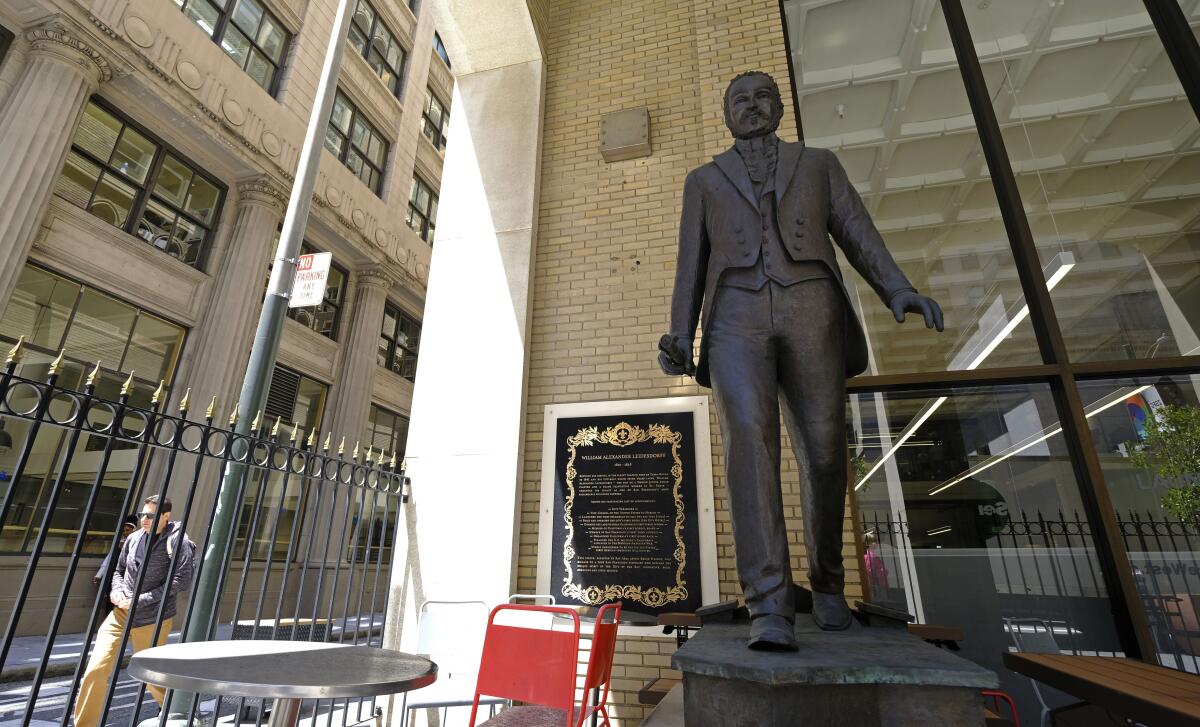
Good morning, and welcome to the Essential California newsletter. Itâs Thursday, June 23. Iâm Justin Ray.
A California recreation areaâs name has been changed because it was deemed offensive. Itâs not the first time the state has seen residents reassess the name of a region, but the controversy is worth a closer look.
Californiaâs State Park and Recreation Commission has voted to temporarily rename a historic park formerly known as Negro Bar while a new name is chosen. It will be known as Black Miners Bar, the commission said in a 7-0 vote.
For years, residents and visitors have called for a name change. An online petition launched in 2018 gathered nearly 68,000 signatures. It was started by Stockton resident Phaedra Jones, a Black woman, who was on her way to deliver an Uber Eats order and was outraged when she spotted a sign that bore the name âNegro Bar.â The petition notes that this is actually the tamer version of its original, offensive name. (Zoom in on San Juan and look to the right.)
As I read about the controversy, I learned about a man named William Leidesdorff, who once owned the land. When I tried to find recent articles about him published by this paper, I wasnât able to locate any. So, I want to take this opportunity as writer of this newsletter, while I have it, to tell the world about the âAfrican founding father of California.â
The following information comes from author and civil rights activist Sue Bailey Thurmanâs book âPioneers of Negro Origin in California,â the Sacramento Bee, the San Francisco Examiner and the state Legislature.
The legacy of William Leidesdorff
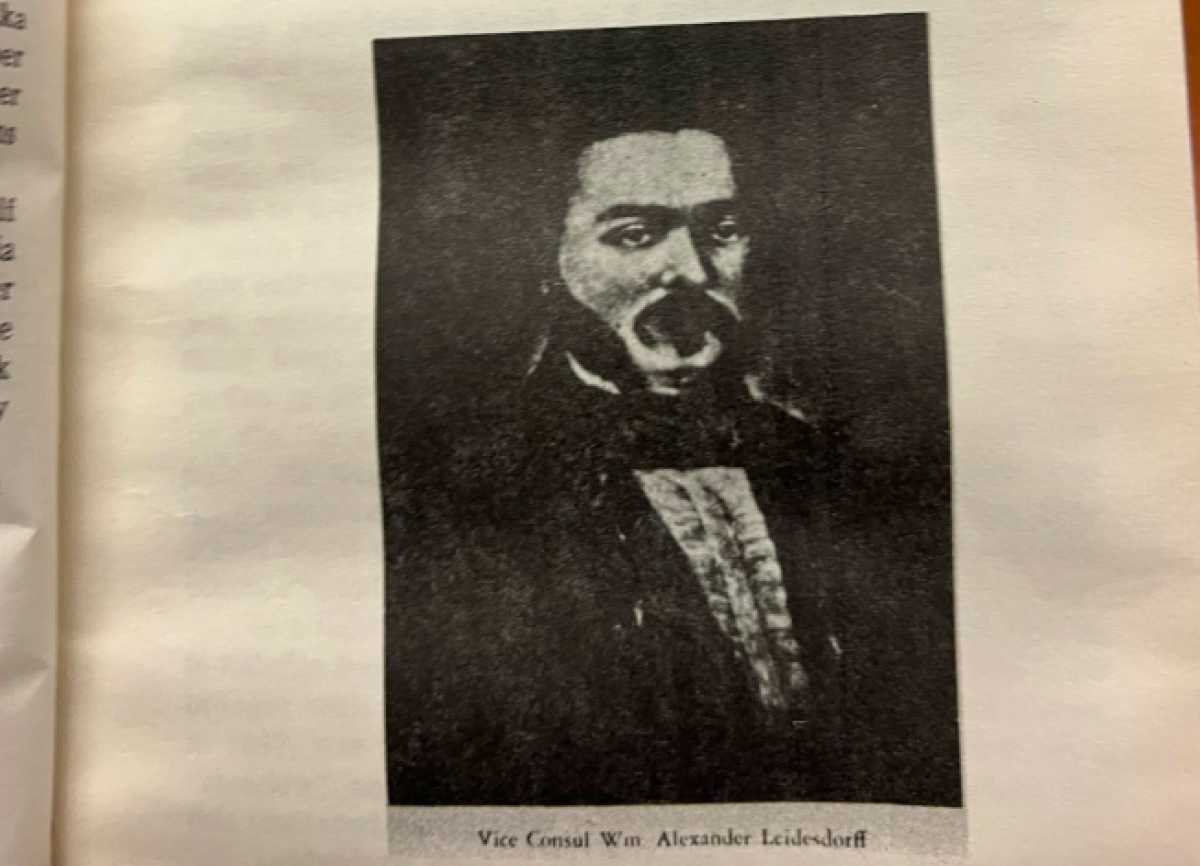
William Alexander Leidesdorff Jr. was born in 1810 in St. Croix, Virgin Islands, to Danish sugar planter William Leidesdorff and Anna Marie Sparks, an African woman.
He left in his youth, traveling to New Orleans to participate in maritime trade. He became a master of vessels, sailing between New Orleans and New York. He also accumulated wealth.
But the West called to him, spurring him to sell his belongings in New Orleans and buy a 106-ton schooner named Julia Ann, which took him across the Pacific Ocean. After many months, he landed in the sleepy Mexican fishing village of Yerba Buena Cove (a part of present-day San Francisco) to create a world maritime center.
His ability to speak Spanish (in addition to at least five other languages) helped him forge ties with the Mexican government. In 1843, Leidesdorff was naturalized as a Mexican citizen, which was done to help him acquire an expansive land grant from the Mexican authorities in the Sacramento Valley.
With dual citizenship, he obtained a grant of 35,521 acres of prime real estate on the left bank of the American River. He named it Rancho Rio de Los Americanos. Through global trade and the financing of commerce projects, he helped stabilize and develop the Sacramento Valley. He also had the distinction of being the first African American diplomat in history (even before Frederick Douglass), having been appointed vice consul to Mexico by Consul Thomas Oliver Larkin, serving under the jurisdiction of Commodore Robert F. Stockton, who was the military governor of California. These achievements led to him being affectionately known as the âAfrican founding father of California.â
But his legacy includes shameful chapters. He accepted Native American slaves from friend John Sutter to repay debts, an example of the little-acknowledged institution of Indigenous slavery that took place in the Golden State in the 1850s and â60s. Leidesdorff also hosted the first recorded minstrel show on the West Coast.
When he died of typhus in 1848, he had no children and no will, which set off a battle for his estate. One of the areas he owned was the land at the center of the naming dispute that began this newsletter. It was taken over by Black gold miners, who were able to accumulate wealth and escape poverty.
* A funny side story: To find a book about William Leidesdorff in Los Angeles, I went to the downtown Central Library. A librarian noted that a book I was interested in had water damage and rippling. (She told me every book had two stories â one inside and another on the outside.) She explained that the workâs injuries came from the great fire that ravaged the branch in 1986. Then, she told me about a writer who documented the aftermath. She would march up and down the steps, talking to staff about the incident. You couldnât miss her because she had hair as red as the blazes she would eventually chronicle. That writer was Susan Orlean.
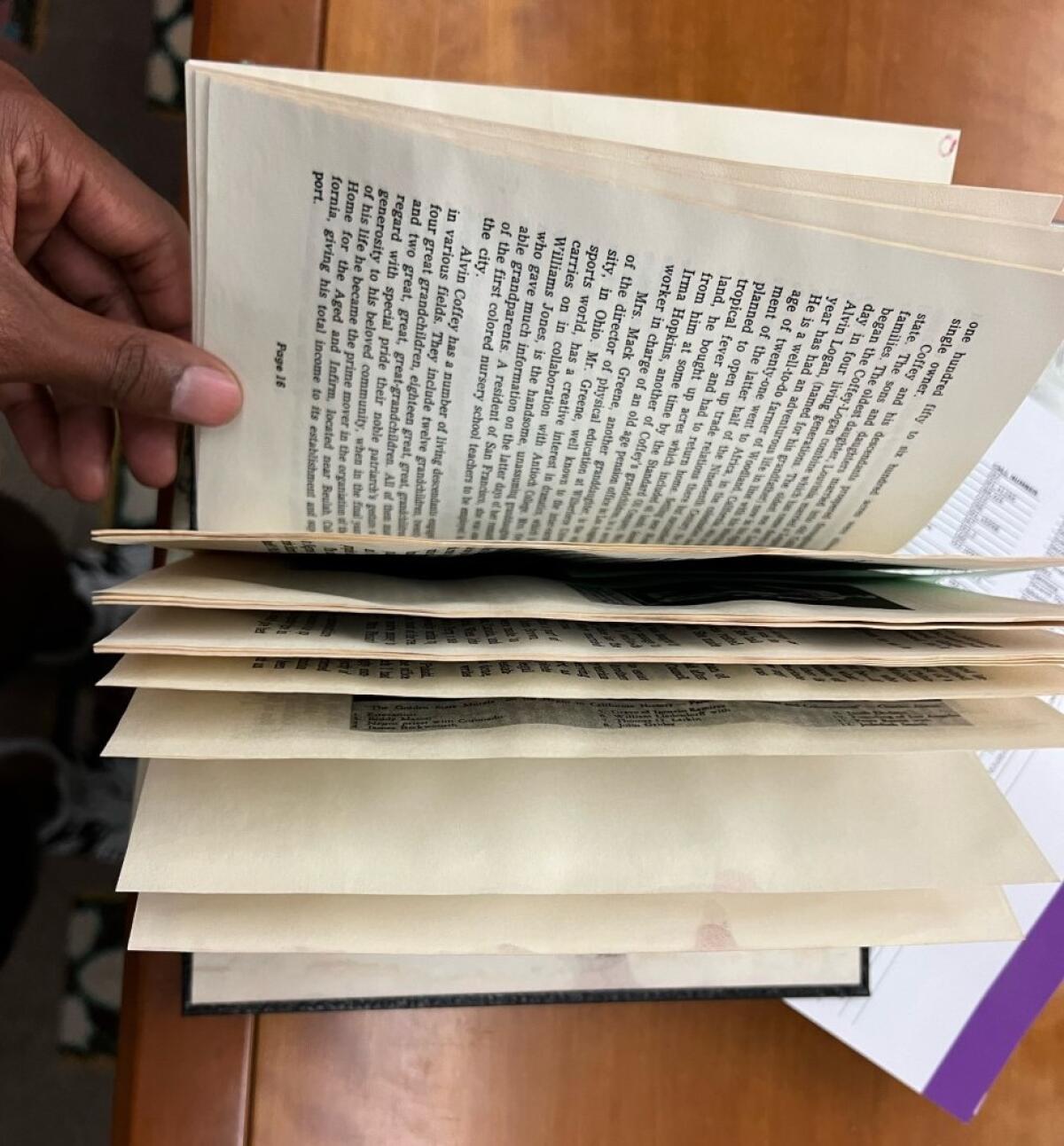
* Another note: Essential California will be written by my colleagues next week while Iâm on vacation.
And now, hereâs whatâs happening across California:
Note: Some of the sites we link to may limit the number of stories you can access without subscribing.
L.A. STORIES
Interactive report: Black L.A. is all around us. I wanted to share this just in case you missed it. The L.A. Times created an interactive story about âthe beauty of Black Los Angeles.â We interviewed and took amazing portraits of the community. âWe bring such history to every place we go,â said Michael J. Fisher, senior pastor of Greater Zion Church Family in Compton. âWe bring a culinary aspect, we bring the arts, we bring dancing, weâre gonna bring the energy, poetry.â Los Angeles Times
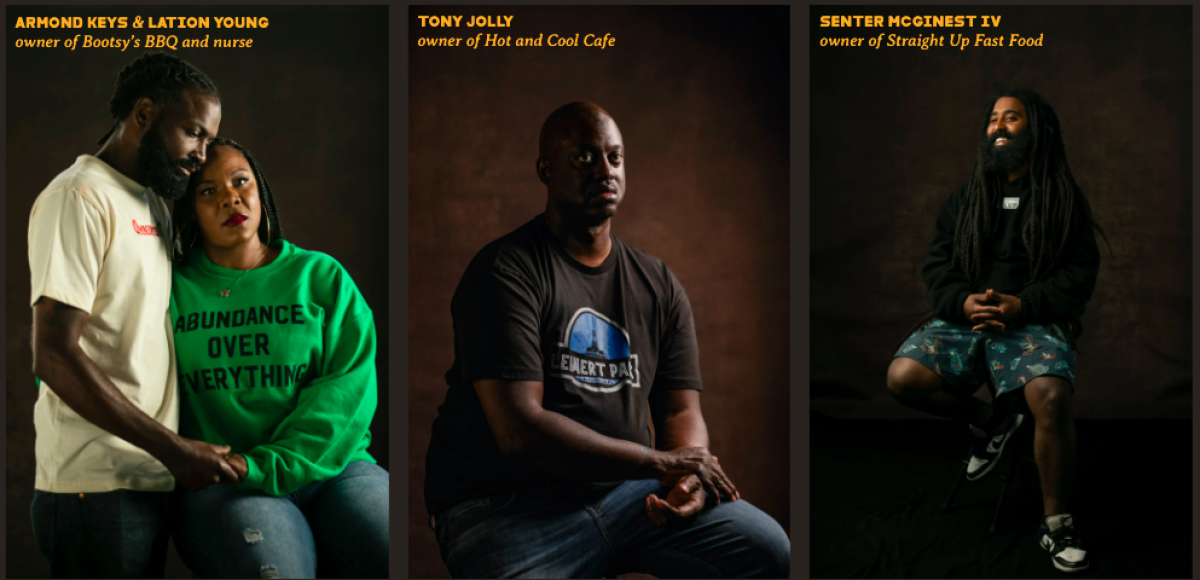
A woman and two dogs were fatally struck by lightning Wednesday morning in Pico Rivera as thunderstorms pounded Southern California, prompting officials to temporarily close beaches and remain on high alert for fires sparked by dry lightning. Los Angeles Times
Our daily news podcast
If youâre a fan of this newsletter, youâll love our daily podcast âThe Times,â hosted every weekday by columnist Gustavo Arellano, along with reporters from across our newsroom. Go beyond the headlines. Download and listen on our App, subscribe on Apple Podcasts and follow on Spotify.
POLITICS AND GOVERNMENT
California officials have recovered $1.1 billion in unemployment insurance funds amid an ongoing investigation into widespread pandemic-related fraud. Most of the money, on about 780,000 inactivated benefit cards, will be turned over to the federal government because the claims went through the emergency Pandemic Unemployment Assistance program, according to a statement from Gov. Gavin Newsomâs office. Los Angeles Times
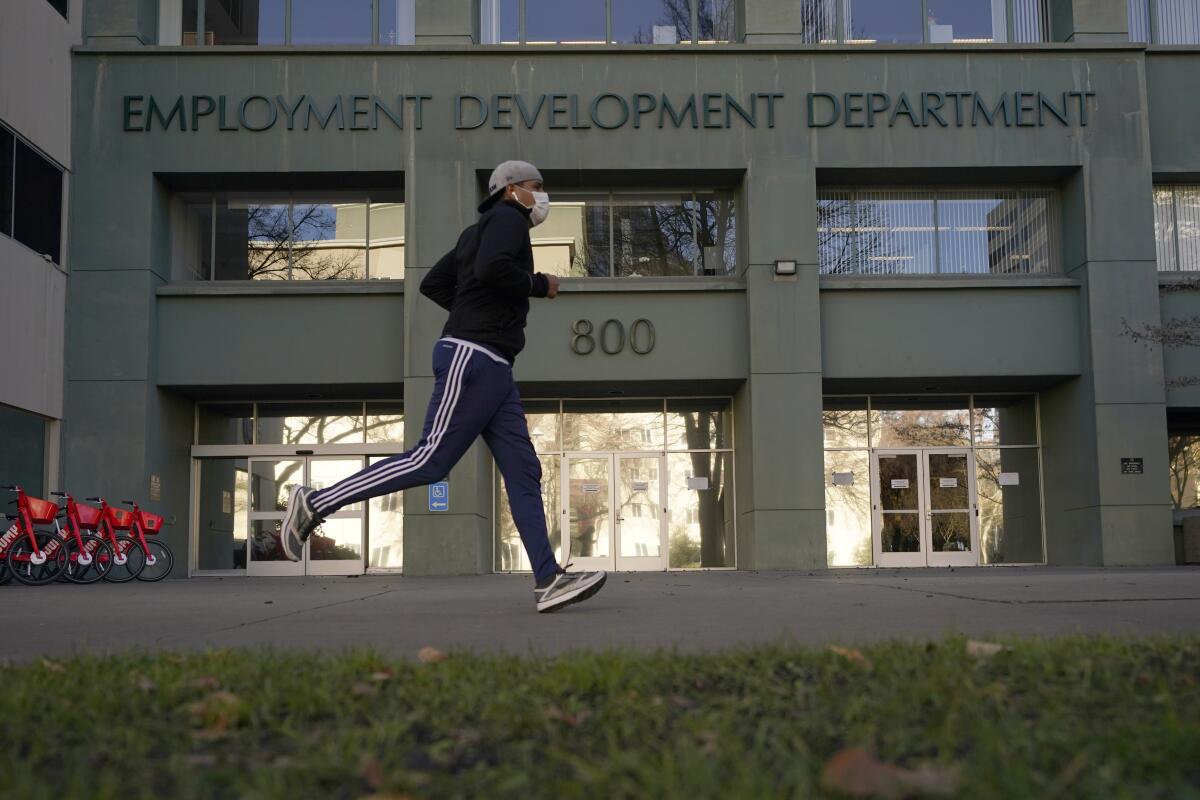
CRIME, COURTS AND POLICING
Bill Cosby sexually abused a teenage Judy Huth at the Playboy Mansion in the mid-1970s, a civil jury decided Tuesday in Santa Monica. The disgraced comedian, 84, was ordered to pay Huth $500,000. Los Angeles Times
Police arrested a man on hate crime charges after multiple instances of anti-Asian graffiti were found on a home in Northern California. San Leandro police say someone vandalized a for-sale sign in front of the home. The real estate agent for the property initially didnât want to report the incident, but decided to after graffiti with a racial slur appeared on the garage. Nicholas Swyers, 25, was arrested early Monday. ABC 7
Support our journalism
HEALTH AND THE ENVIRONMENT
Column: I dodged COVID for more than two years. The latest surge finally got me. Opinion columnist Robin Abcarian discusses finally catching COVID-19. âOn Tuesday morning, I woke up with a sore throat, slight fever and the sinking feeling that my luck had run out. Two red lines on the rapid antigen test confirmed it,â Abcarian writes. âWith two vaccines and one booster shot under my belt, how sick would I get?â It turns out, worse than she thought. Los Angeles Times

In California, it barely pays to take care of elders in need at home. As of December, more than 666,000 Californians were authorized recipients of in-home supportive services, according to the state Department of Social Services. Those figures are set to grow, yet the state is already lagging in its ability to provide those services. In 2020, the state auditor found that more than 32 million hours of assessed need were going unmet across the state. Why? Low wages can make the job unattractive to prospective aides. Women make up 88.6% of the workforce, with 54.6% of the workers being women of color and more than a quarter of them immigrants. Capital and Main
CALIFORNIA CULTURE
Sriracha hot sauce shortage, and the California drought. Huy Fong Foods has made its world-famous sriracha hot sauce in Irwindale for four decades. However, climate change is affecting the companyâs ability to make the hot stuff. The heat and drought have affected hot pepper crops that sriracha is made from, and the company has had to suspend production until at least the fall this year. CBC
Free online games
Get our free daily crossword puzzle, sudoku, word search and arcade games in our new game center at latimes.com/games.
CALIFORNIA ALMANAC
Los Angeles: Sunny, 86. San Diego: Sunny, 74. San Francisco: Sunny, 71. San Jose: Sunny, 87. Fresno: Sunny, 104. Sacramento: Sunny, 97.
AND FINALLY
Todayâs California memory is from Elizabeth Stewart:
âWe often camped summers at Hendy Woods State Park when the kids were little. We all loved it: the shingle beaches of the Navarro River, the majestic silence in old growth redwoods, the campsites beneath the trees with their rustic convenience, the harsh cries of the Stellerâs jays. The kids had the run of the place. Enjoying coffee one morning, we saw Roddy, about 10, running up from the river alight with excitement. Heâd been up at dawn and off exploring. âMom! Dad! I saw it running along the bank! Then it slid in! An otter!â â
If you have a memory or story about the Golden State, share it with us. (Please keep your story to 100 words.)
Please let us know what we can do to make this newsletter more useful to you. Send comments to [email protected].
Sign up for Essential California
The most important California stories and recommendations in your inbox every morning.
You may occasionally receive promotional content from the Los Angeles Times.




